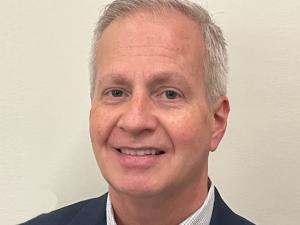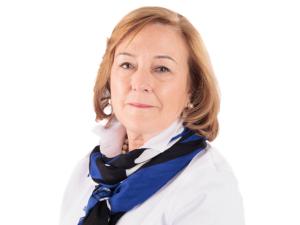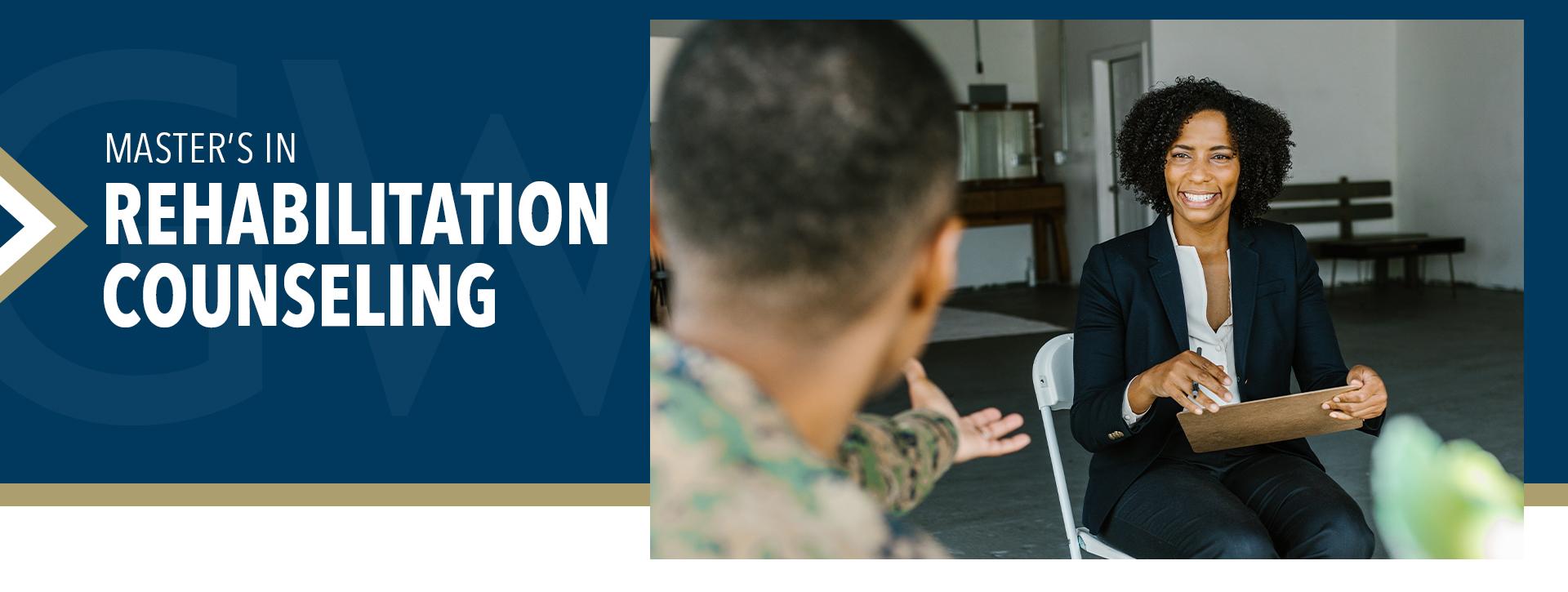Master's in Rehabilitation Counseling
Your life-changing career in changing lives starts here.
For those facing physical, mental, emotional, or social challenges, rehabilitation counselors offer hope and empowerment while facilitating services addressing employment and independent living. Rehabilitation counselors serve as a source of expertise, guidance and personal support for individuals and their families, thus enhancing their quality of life.
Our master’s program in Rehabilitation Counseling, offered on-campus and online, combines rigorous course content with supervised, clinical experience to provide a foundation for serving diverse populations. Graduates of the Rehabilitation Counseling program are eligible for Certification as a Rehabilitation Counselor (CRC), eligible for certification as a National Certified Counselor (NCC), eligible to apply for licensure as a professional counselor.
Nationally Ranked & Accredited
Our program is ranked 3rd in the nation by U.S. News and World Report and accredited by the Council for Accreditation of Counseling and Related Educational Programs (CACREP).
Scholar-Practitioner Faculty
Learn from faculty members who are active in the field and can provide their own real-world experiences and uncommon insights.
Convenient Schedule
Courses are scheduled once a week in late afternoons and evenings (Monday-Thursday) to accommodate working professionals and internships.
Accessible
Available on-campus at our Foggy Bottom location and online, so you can attend anywhere in the world.
The GW Advantage
Whether attending on-campus or online, a GW education is unlike any other. Students in the program are paired with a dedicated mentor who provides educational guidance and professional development support. Through this mentorship program—and with GW’s extraordinary access to leading national and international organizations—students build meaningful connections with renowned alumni and industry leaders. Join the ever-expanding GW community working to leave the world a better place for future generations.
Degree Awarded:
Master of Arts in Education and Human Development in the Field of Rehabilitation Counseling
Department:
Counseling and Human Development
Course Delivery:
-Foggy Bottom Campus
-Online
Program Entry:
-Fall
- Our Mission
This program prepares professionals to empower those with disabilities through counseling. Graduates of the program are experts in helping individuals to enhance their quality of life. Among the many topics taught, students will learn:
- Philosophical foundations of rehabilitation counseling
- Individual, group and family counseling theories
- Case management
- Ethical standards for counselors
- Curriculum
The following requirements must be fulfilled: 60 credits in required courses. In addition, students are required to complete 600 hours in internships (300 hours in each of CNSL 6185 and CNSL 6186), and 100 hours as part of a practicum (CNSL 6269).
Students seeking licensure must take CNSL 6271 as their elective.
Code Title Required CNSL 6114 Introduction to Research and Evaluation in Counselor Education CNSL 6151 Professional and Ethical Orientation to Counseling CNSL 6153 Counseling Interview Skills CNSL 6154 Theories and Techniques of Counseling CNSL 6155 Career Counseling CNSL 6157 Individual Assessment in Counseling CNSL 6161 Group Counseling CNSL 6163 Social and Cultural Dimensions of Counseling CNSL 6171 Family Counseling CNSL 6173 Diagnosis and Treatment Planning CNSL 6174 Trauma and Crisis Intervention CNSL 6185 Internship in Counseling CNSL 6186 Advanced Internship in Counseling CNSL 6269 Practicum in Counseling CNSL 6376 Foundations of Rehabilitation Counseling CNSL 6378 Disability Management and Psychosocial Rehabilitation CNSL 6380 Job Placement and Supported Employment CNSL 6381 Medical and Psychosocial Aspects of Disabilities HDEV 6108 Life Span Human Development Elective -3 credits in approved elective courses selected in consultation with the program advisor
-Students who wish to apply for licensure must take CNSL 6271 to fulfill this requirement.- Clinical Training (On-Campus Students Only)
Unique to our program, students enrolled in our on-campus program begin their clinical training by completing two semesters in the department’s clinic, the Community Counseling Services Center (CCSC), wherein they deliver counseling services under supervision. The first semester is a Practicum in Counseling followed by a semester of Advanced Clinical Skills.
Students then complete a two-semester internship at health and human services agencies in the community, such as welfare and other social service agencies, mental health centers, penal institutions, court systems, employment and career centers, allied health agencies, government service agencies, community college counseling centers, and private practice.
- Program Outcomes
Graduates of the Rehabilitation Counseling program are eligible for Certification as a Rehabilitation Counselor (CRC), eligible for certification as a National Certified Counselor (NCC), eligible to apply for licensure as a professional counselor.
Our alumni work in both public and private organizations, and often make professional connections before graduating through our alumni mentorship program.- Program Data
Data from 2022-2023*
- Retention Rate: 87%
- Average Time to Complete the Program: 2.6 years (8 semesters)
- 2021-2022 Cost: On campus $1870 per credit; Online $950 per credit
- Scholarships: Federal long term rehabilitation counseling training scholarships and merit based scholarships
- Employment Rate (at 6 months post graduation): 100%
- Employment Settings: State VR agencies, community-based rehabilitation programs, private rehabilitation companies, independent living centers
- Licensure Eligibility: Certified Rehabilitation Counselor (CRC), National Certified Counselor (NCC), Licensed Professional Counselors (LPC) for 60 credit program (requirements vary by state)
- CRC Passing Rates: 87% (National Passing Rate: 65%)
- Accreditation Status: Accredited by CACREP through 2030
- Annual Fall Enrollment: 44
- Number of Graduates: 10
Graduate Certificate Offered
Gain credentials and advance in your field faster by concurrently enrolling in our related graduate certificate program.
You can earn this graduate certificate first and transfer all 12 credit hours toward the Master's degree.*
*All requirements must be met and student accepted to the master's program
Foundations of Rehabilitation Counseling
Further develop your counseling abilities to effectively guide and place persons with disabilities into steady employment environments. The curriculum provides you with specialized experiential learning opportunities and can be created to complete a minimum of four courses needed to sit for the Certified Rehabilitation Counselor examination or to pursue eligibility criteria for licensure as a professional counselor.
Apply Now
GSEHD’s Office of Admissions invites you to apply for a spot in our program. Please review the following admission and financial information.
Ready to take the next step in your career? Review our step-by-step guide to applying to GSEHD >
To learn more about the program, admission process, and upcoming events, please connect with the GSEHD Admissions Team at askcounseling![]() gwu [dot] edu (askcounseling[at]gwu[dot]edu) or 202-994-9283.
gwu [dot] edu (askcounseling[at]gwu[dot]edu) or 202-994-9283.
| Apply Now | Schedule Consultation with Admissions Coach |
To be considered for admission, applicants must submit the online application form as well as the following required supporting documents. There is no application fee.
- Prerequisite: Bachelor's Degree
- Resume
- Transcripts from all previously attended colleges or universities
- Statement of Purpose
- Two Letters of Recommendation
*Additional application requirements may exist for international applicants.
Applications are now being accepted for Fall 2025. We encourage you to apply as early as possible.
For more information or to inquire about the next admissions cycle, contact the GSEHD Admissions Team at askcounseling
 gwu [dot] edu (askcounseling[at]gwu[dot]edu) or 202-994-9283.
gwu [dot] edu (askcounseling[at]gwu[dot]edu) or 202-994-9283.Application Timeline Fall (On-Campus) Fall (Online) Priority Deadline Nov 1 Nov 1 Round 1 Deadline Dec 15 Dec 15 Round 2 Deadline Jan 15 Jan 15 Round 3 Deadline March 1 March 1 Round 4 Deadline April 1 May 1 Round 5 Deadline May 1 June 15 (Please note: applicants within a 50 mile radius of GW's main campus are only eligible for the main campus program)
Tuition & Financial Aid
We know embarking upon graduate school is a big decision. At GW, we understand the time and thought behind making graduate school work for you. Please take a moment to learn more about the options and opportunities available to help fund your graduate education.

New: Save 20% with Federal Service Scholarship
If you are a current U.S. federal civilian employee or a federal employee/contractor affected by the 2025 federal workforce reductions, you may be eligible* for GSEHD's Federal Service Scholarship, which provides a 20% tuition discount. Deadline: Apply for the On-Campus Program for Fall 2025 enrollment by June 1. View full details >
The tuition rate* for the On-Campus Master's in Rehabilitation Counseling program is $2,000 per credit hour. This program requires 60 credits.
Please note: Additional fees may apply for international students, late fees, etc. Current tuition rates may be updated during the year.
*Summer 2025, Fall 2025, Spring 2026
Scholarships are available to eligible admitted students. Review eligibility requirements and learn more about funding your education >
Graduate tuition is charged per credit hour, unless otherwise noted. Rates vary by program and location.
The tuition rate* for the Online Master's in Rehabilitation Counseling program is reduced to $1,020 per credit hour. This program requires 60 credits.
Please note: Additional fees may apply for international students, late fees, etc. Current tuition rates may be updated during the year.
*Summer 2025, Fall 2025, Spring 2026
Scholarships are available to eligible admitted students. Review eligibility requirements and learn more about funding your education >
Career Outlook
Prepare to become a rehabilitation counselor that assists persons who are physically, mentally and/or emotionally disabled to resume or assume their place in society through employment or independent living. Students complete a 100-hour practicum and 600 hour internship with a focus on working with persons with disabilities in a vocational rehabilitation setting in order to gain immediate access to the field of rehabilitation counseling.
- Rehabilitation Counseling Career Opportunities
-
- Advocates and client assistance program managers
- Assistive technology specialists
- Case managers
- Community, state and private agency managers
- Independent living program coordinators
- Parole officers
- Rehabilitation counselors
- Supported employment specialists
- Potential Employment Settings
-
- State vocational rehabilitation agencies
- Private rehabilitation companies
- Community-based rehabilitation programs
- Employee assistance programs (EAPs)
- Hospitals
- Independent living centers
- Insurance companies
- Job training centers
- Public schools
- Colleges
- Substance abuse agencies
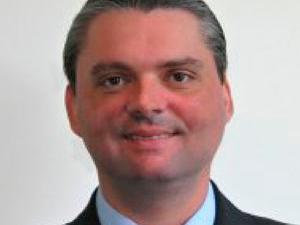
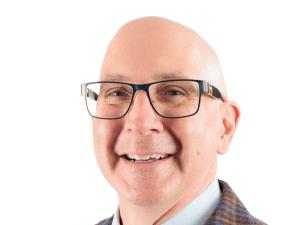
Research Associate Professor, Counseling and Human Development
